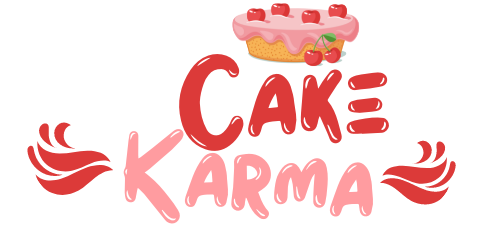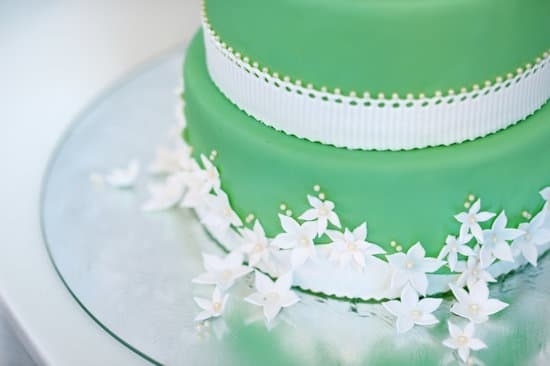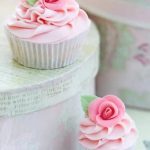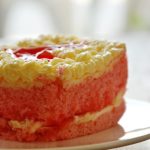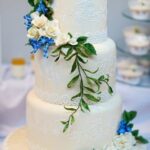What do you call a cake decorator? A cake decorator is often referred to as a pastry chef or a confectioner, specializing in the art of enhancing and beautifying cakes. The world of cake decorating goes beyond just creating delicious treats – it involves a blend of creativity, precision, and skills that transform simple cakes into edible works of art.
Cake decorating has a rich history that dates back centuries, with roots in ancient civilizations where elaborate cakes were reserved for special occasions and celebrations. Over time, the art of cake decoration has evolved into a professional craft practiced by skilled individuals who dedicate their careers to creating stunning confections for various events and occasions.
In this article, we will delve into the world of cake decorating, from its historical origins to the essential skills required to become a professional cake decorator. We will also explore the different titles and roles within the industry, along with the tools and equipment needed to master the art of cake decoration.
Whether you are looking to start a career in cake decorating or simply want to hone your skills as a hobbyist, there is much to discover in this sweet and creative field.
The Origins of Cake Decorating
Cake decorating has a long history that dates back centuries, with evidence suggesting that the art form began as early as the 17th century. In ancient civilizations, such as Egypt and Rome, cakes were often used in religious ceremonies and special occasions. While the designs may not have been as intricate as they are today, the idea of embellishing cakes with decorations was already evident.
One of the earliest known forms of cake decoration can be traced back to medieval Europe, where elaborate sugar sculptures adorned grand feasts and celebrations. These intricate designs were often made from sugar paste or marzipan, showcasing the creativity and skill of bakers at that time. As techniques evolved over the years, cake decorating became more accessible to a wider audience, leading to its popularity in modern times.
In the 19th century, with the advent of new tools and techniques, cake decorating saw a surge in popularity among households and bakeries alike. The Industrial Revolution played a significant role in making decorative elements more affordable and easier to produce on a larger scale.
As a result, cake decoration became an essential part of many celebrations, ranging from weddings to birthdays to holidays. Today, cake decorating continues to thrive as both an art form and a culinary skill appreciated by many around the world.
The Skills Required to Become a Professional Cake Decorator
Skills and Techniques
Becoming a professional cake decorator requires a unique set of skills and techniques that go beyond just baking a delicious cake. Attention to detail is crucial when it comes to decorating cakes, as precision is key in creating intricate designs.
A steady hand and patience are also essential, especially when working with delicate decorations such as fondant or sugar flowers. Understanding the basic principles of design, color theory, and balance can help elevate your cake decorating skills to the next level.
Training and Education
While natural artistic talent can certainly be an advantage in the world of cake decorating, formal training and education can also play a significant role in honing your craft. Many aspiring cake decorators choose to enroll in culinary arts programs or specialized courses focused on pastry arts and cake decoration.
These programs often cover topics such as piping techniques, sugar work, and advanced cake design. Additionally, attending workshops or seminars led by experienced professionals can provide valuable hands-on experience and insight into the industry.
Creativity and Adaptability
One of the most important skills for any professional cake decorator is creativity. Being able to think outside the box and come up with innovative ideas for cake designs is what sets top decorators apart from the rest.
Whether it’s creating a custom wedding cake that perfectly reflects a couple’s love story or designing a whimsical birthday cake for a child’s celebration, creativity plays a central role in the art of cake decorating. Furthermore, being adaptable and willing to learn new techniques or trends in the industry is crucial for staying competitive as a professional cake decorator.
What Do You Call a Cake Decorator
A cake decorator is known by various titles in the industry, each reflecting different roles and levels of expertise. Here are some common titles you may come across when referring to individuals who specialize in the art of cake decoration:
- Cake Artist: This title is often used for professionals who have mastered the craft of creating intricate and visually stunning designs on cakes. Cake artists often take on custom orders for special occasions and events.
- Cake Designer: A cake designer is someone who not only focuses on the visual aspect of cake decoration but also considers elements like flavor combinations, structural integrity, and overall presentation. They are skilled in both the artistic and technical aspects of cake decorating.
- Pastry Chef: While pastry chefs may have a broader range of responsibilities beyond just cake decorating, many pastry chefs specialize in creating beautifully decorated cakes as part of their expertise. They are trained in baking techniques, flavor profiles, and artistic design.
These titles not only showcase the diversity within the field of cake decoration but also highlight the level of skill and creativity required to excel in this profession. Whether you prefer to be called a cake artist, cake designer, or pastry chef specializing in cakes, each title represents a unique aspect of the artistry involved in creating delectable works of edible art.
In addition to these traditional titles, there are also specialized roles within the industry that cater to specific niches or techniques. For example:
- Fondant Specialist: Fondant is a popular medium used in cake decoration for creating smooth and intricate designs. A fondant specialist focuses specifically on mastering techniques related to working with fondant and creating elaborate decorations using this versatile material.
- Sugar Flower Artist: Creating realistic flowers out of sugar paste is a highly specialized skill within cake decorating. Sugar flower artists dedicate their time to perfecting the art of crafting delicate blooms that add an elegant touch to any confection.
- Wedding Cake Consultant: As weddings are a significant market for custom-designed cakes, some professionals specialize in helping couples create their dream wedding cake. These consultants work closely with clients to design personalized cakes that reflect their style and theme.
No matter what title you choose or role you aspire to fulfill as a cake decorator, it’s clear that this profession requires not only technical skill but also a passion for creativity and innovation. Whether you’re shaping fondant into intricate designs or piping buttercream onto cupcakes with precision, being a cake decorator means bringing joy to others through delicious works of art.
Tools of the Trade
Cake decorating is an intricate and creative art form that requires a specific set of tools to achieve stunning results. From piping bags and tips to fondant smoothers and turntables, the equipment used by cake decorators plays a crucial role in bringing their designs to life.
One essential tool for every cake decorator is the offset spatula, which is used for spreading icing and creating smooth finishes on cakes. Additionally, a rotating turntable allows decorators to easily spin their cakes as they work, ensuring uniform coverage and precision.
Another indispensable piece of equipment for cake decoration is the piping bag, which comes in various sizes and shapes to create different effects with icing. Paired with a selection of piping tips, decorators can pipe intricate designs, borders, and lettering onto their cakes. Fondant tools like smoothers and modeling tools are also essential for working with fondant or gum paste, allowing decorators to shape, sculpt, and embellish their creations with precision.
For more advanced techniques such as sugar flower making or hand-painted designs, specialized tools like edible paint brushes, petal dusts, and floral wires are necessary. These tools enable decorators to add intricate details and realistic elements to their cakes. Ultimately, having the right equipment is vital for any aspiring cake decorator looking to hone their skills and create beautiful edible works of art.
| Equipment | Importance |
|---|---|
| Offset spatula | For smooth finishes on cakes |
| Piping bag and tips | Creating intricate designs with icing |
| Fondant smoothers and modeling tools | Shaping fondant or gum paste with precision |
Tips and Tricks for Mastering the Art of Cake Decorating
Practice Makes Perfect
One of the most important tips for mastering the art of cake decorating is to practice regularly. Like any skill, the more you practice, the better you will become. Start with simple techniques and gradually work your way up to more complex designs. Experiment with different icing consistencies, piping tips, and decorations to hone your skills.
Learn From Others
Another valuable tip is to learn from experienced cake decorators. Take classes, watch tutorials online, or join a community of bakers and decorators to gain insight and knowledge from those who have been in the industry for a while. Don’t be afraid to ask questions and seek feedback on your work – constructive criticism can help you improve and grow as a decorator.
Attention to Detail
Detail is key when it comes to cake decorating. Pay close attention to every aspect of your design, from the smoothness of the icing to the placement of decorative elements. Take your time and don’t rush through the process. Remember that even the smallest details can make a big difference in the overall look of your cake. By focusing on precision and perfection in your work, you can elevate your decorating skills to a whole new level.
The Importance of Creativity and Innovation in Cake Decoration
Creativity and innovation are key components in the world of cake decoration. Whether you are baking a simple birthday cake or crafting an elaborate wedding masterpiece, the ability to think outside the box and come up with unique designs can truly set a cake decorator apart. It is not just about following traditional techniques; it is about pushing boundaries and creating edible works of art that leave a lasting impression.
In the realm of cake decoration, creativity allows for endless possibilities. A talented cake decorator can transform a basic sheet cake into a whimsical wonderland or turn a tiered cake into a showstopper. Innovation, on the other hand, involves thinking of new ways to use existing tools and techniques to achieve groundbreaking results. This could involve experimenting with different flavor combinations, trying unconventional decorating methods, or incorporating non-traditional elements into your designs.
| Key Concepts | Impact on Cake Decoration |
|---|---|
| Creativity | Allows for endless design possibilities and helps decorators stand out from the crowd. |
| Innovation | Encourages experimentation with new techniques and keeps decorators current with industry trends. |
Cake Decorating Trends to Watch for in the Upcoming Year
Cake decorating is an ever-evolving art form that constantly sees new trends emerging each year. As we look ahead to the upcoming year, it is essential to stay updated on the latest cake decorating trends to ensure your creations remain fresh and appealing. From innovative techniques to popular themes, there are several exciting trends shaping the world of cake decoration.
One trend that continues to gain popularity in the cake decorating industry is the use of edible flowers. Whether real or made from sugar paste, flowers add a touch of elegance and beauty to any cake design. From delicate rose petals to vibrant pansies, incorporating edible flowers into your creations can elevate your cakes to a whole new level.
Another trend that is expected to make waves in the upcoming year is geometric designs. Clean lines, sharp angles, and intricate patterns create visually stunning cakes that are sure to impress. Whether it’s a modern wedding cake or a sleek birthday creation, geometric designs offer a contemporary twist on traditional cake decorating.
Furthermore, interactive cakes are predicted to be a big hit in the upcoming year. These cakes not only look impressive but also provide an element of fun and surprise for those enjoying them. From pinata cakes filled with treats to hidden messages revealed when sliced, interactive cakes engage both the eyes and taste buds of everyone involved. Stay ahead of the curve by embracing these exciting cake decorating trends in the coming year.
Conclusion
Being a cake decorator is not just a profession, but a true art form that requires dedication, creativity, and skill. Throughout history, cake decorating has evolved from simple designs to intricate masterpieces that showcase the talent and expertise of these artisans. Today, professional cake decorators are in high demand for various events such as weddings, birthdays, and corporate functions.
What do you call a cake decorator? Some may refer to them as pastry artists, sugar artists, or even cake designers. Regardless of the title, one thing remains constant: their ability to transform a simple cake into a work of art that mesmerizes and delights. The skills required to become a professional cake decorator go beyond just piping techniques and fondant handling; it also involves patience, attention to detail, and a passion for creating something beautiful.
As we look towards the future of cake decorating, it’s important to stay updated on the latest trends in the industry. From drip cakes to mirror glaze finishes, there are always new techniques and styles emerging that can inspire and challenge decorators to push their creative boundaries. By embracing creativity and innovation, cake decorators can continue to wow their clients with show-stopping creations that leave a lasting impression.
In conclusion, being a cake decorator is truly a sweet success that allows individuals to showcase their artistic talents while bringing joy and happiness to others through their edible works of art. Whether you’re just starting out or have years of experience in the industry, the world of cake decorating offers endless possibilities for growth and creativity.
So next time you see a beautifully decorated cake at an event, take a moment to appreciate the hard work and skill that went into creating such a masterpiece by these talented artisans.
Frequently Asked Questions
What Do You Call Someone Who Decorates Cakes?
A person who decorates cakes is typically called a cake decorator. Cake decorators use a variety of techniques to create beautiful designs on cakes, including icing, fondant, and edible decorations.
What Is a Cake Specialist Called?
A cake specialist is often referred to as a pastry chef or a cake artist. These professionals have specialized skills in baking and decorating cakes, creating visually stunning and delicious masterpieces for special occasions.
What Do You Call a Person Who Makes Cake?
A person who makes cakes is commonly known as a baker or a pastry chef. Bakers have the expertise to create various types of cakes, from simple everyday treats to elaborate tiered cakes for weddings and other celebrations. Their creativity and baking skills are essential in producing delectable desserts that satisfy sweet cravings.

Welcome to our cake decorating blog! My name is Destiny Flores, and I am the proud owner of a cake decorating business named Cake Karma. Our mission is to provide delicious, beautiful cakes for all occasions. We specialize in creating custom cakes that are tailored specifically to each customer’s individual needs and tastes.
